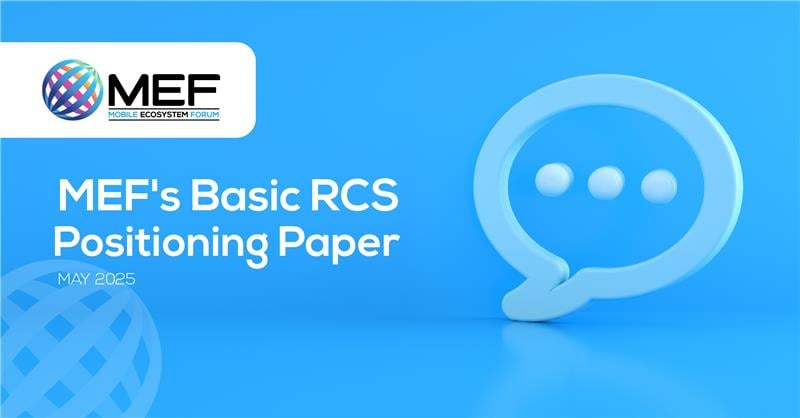Unpack the future of business messaging with MEF’s “Basic RCS Positioning Paper.”
This essential guide delves into the evolution of SMS, introducing Basic RCS as a powerful tool for brands seeking verified, secure, and engaging communication. Explore the key benefits, including brand recognition, enhanced customer insights, and reduced fraud, all while maintaining cost efficiency with SMS-equivalent pricing.
Discover how Basic RCS bridges the gap to richer messaging experiences, offering a stepping-stone for advanced features and increased ROI.
This comprehensive paper provides critical insights into the industry consensus on launching Basic RCS, addressing key questions around billing, character limits, and user responses. Learn about product positioning strategies, messaging approaches for aggregators and brands, and real-world examples showcasing Basic RCS’s effectiveness.
Understand how it compares to SMS and alternative channels like WhatsApp, and why it’s positioned as the evolution of SMS in a climate of declining trust. Gain a clear understanding of service names, national variations, and the MEF’s recommendations for a unified global approach.
Download the “Basic RCS Positioning Paper” today to stay ahead of the curve in the dynamic landscape of mobile messaging. Whether you’re an aggregator, brand, or mobile network operator, this paper equips you with the knowledge to navigate the transition to Basic RCS seamlessly. By embracing this new standard, you can enhance customer engagement, bolster brand trust, and secure your communication channels against fraud, ensuring a successful and future-proof messaging strategy.

Key Takeaways
- Basic RCS is an evolution of SMS: It offers text-based messaging over the RCS channel with added benefits like brand recognition and verification, acting as a stepping-stone to richer RCS experiences.
- Enhanced Brand Presence: Unlike SMS, Basic RCS allows for brand names, logos, and verification marks, increasing trust and recognition in communications.
- Addresses SMS Challenges: Basic RCS helps mitigate issues like fraud (spoofing, phishing) and declining trust associated with traditional SMS. · Cost-Effective Migration: Many operators are pricing Basic RCS similarly to SMS, encouraging a smooth and financially viable transition for businesses.
- Key Features: Basic RCS includes features such as read receipts and web link previews, offering insights and enhanced user experience compared to SMS.
- Industry Consensus and Standardization: The paper aims to provide industry consensus on launching Basic RCS, focusing on standardized naming, pricing, and deployment for a unified global approach.

